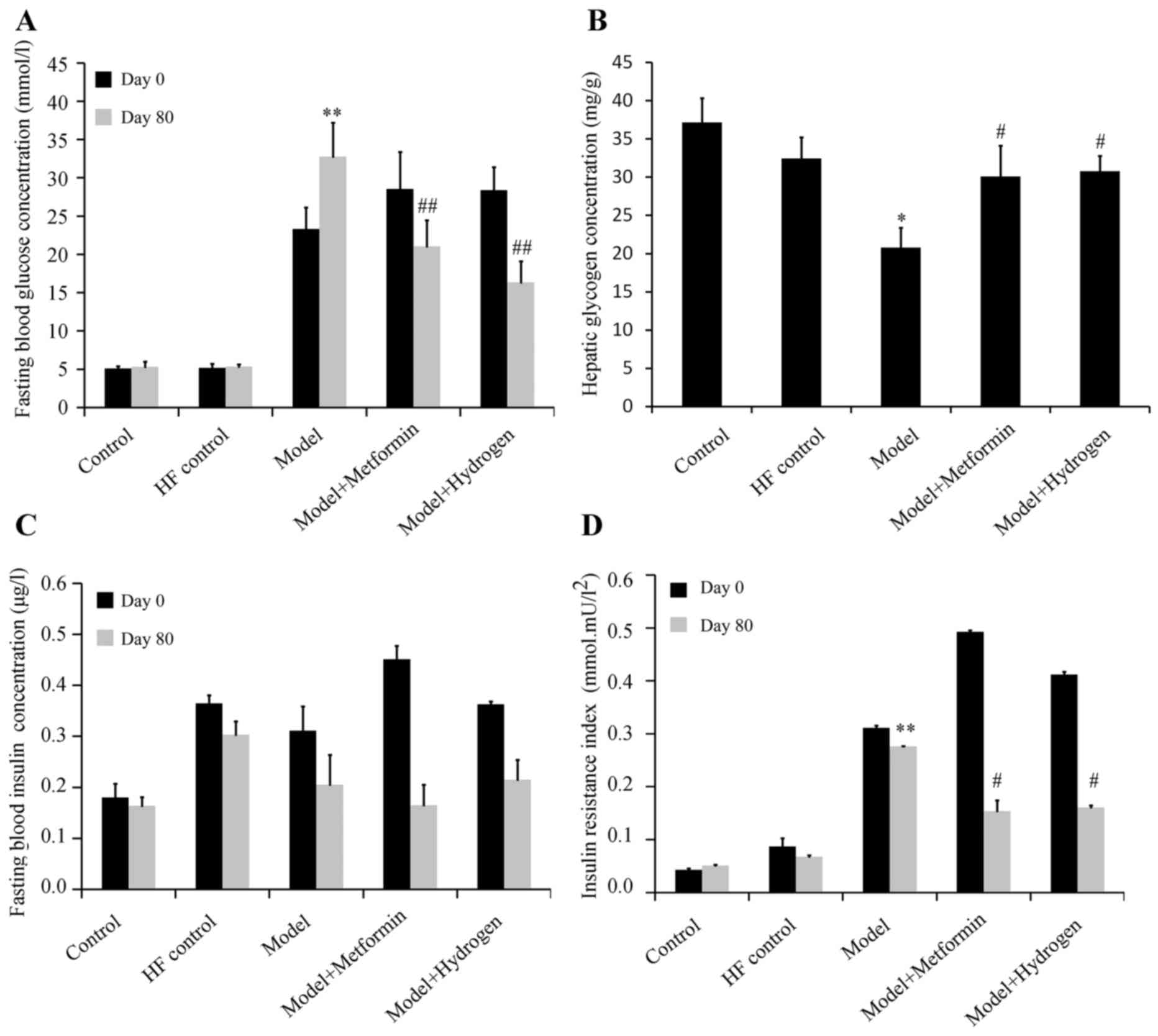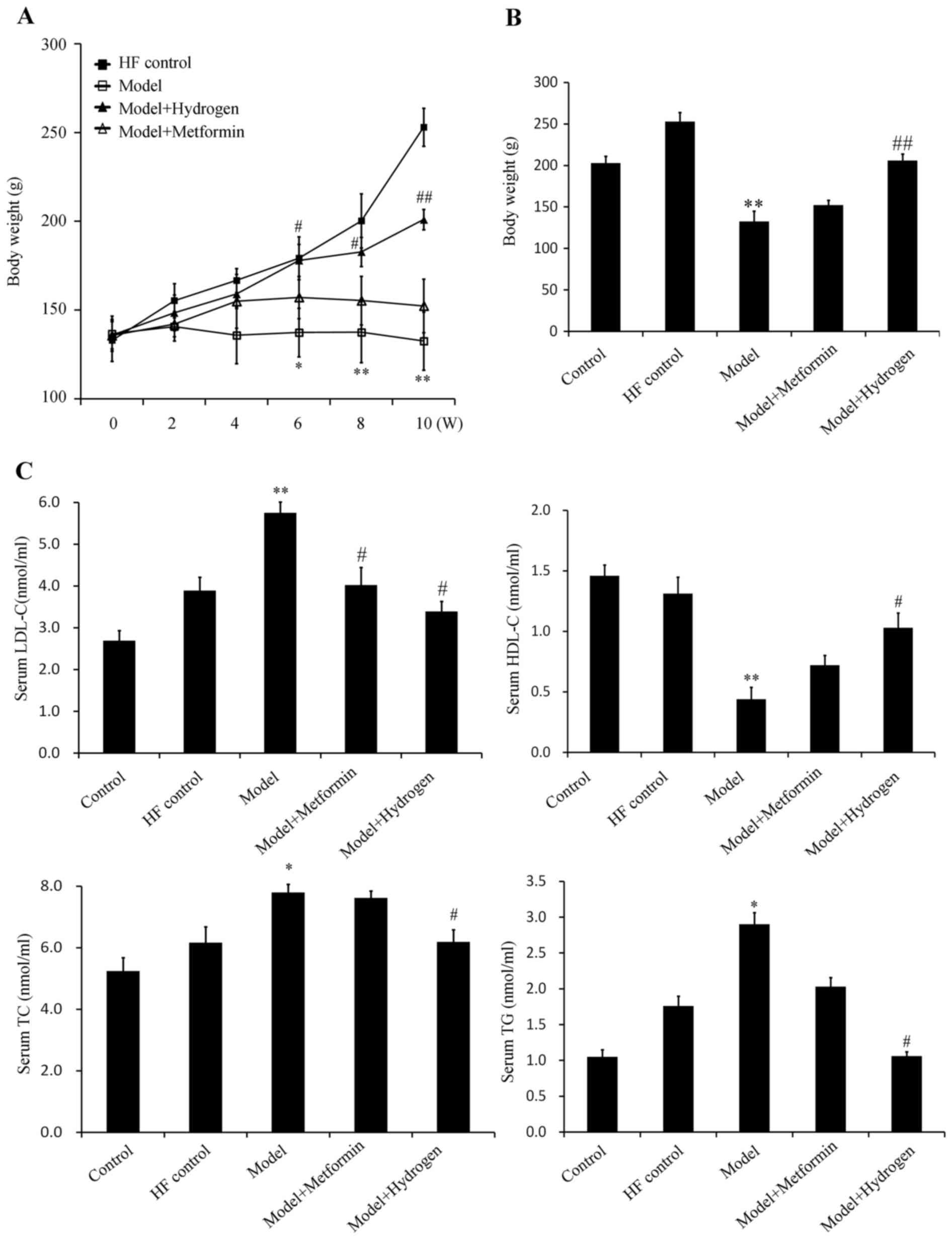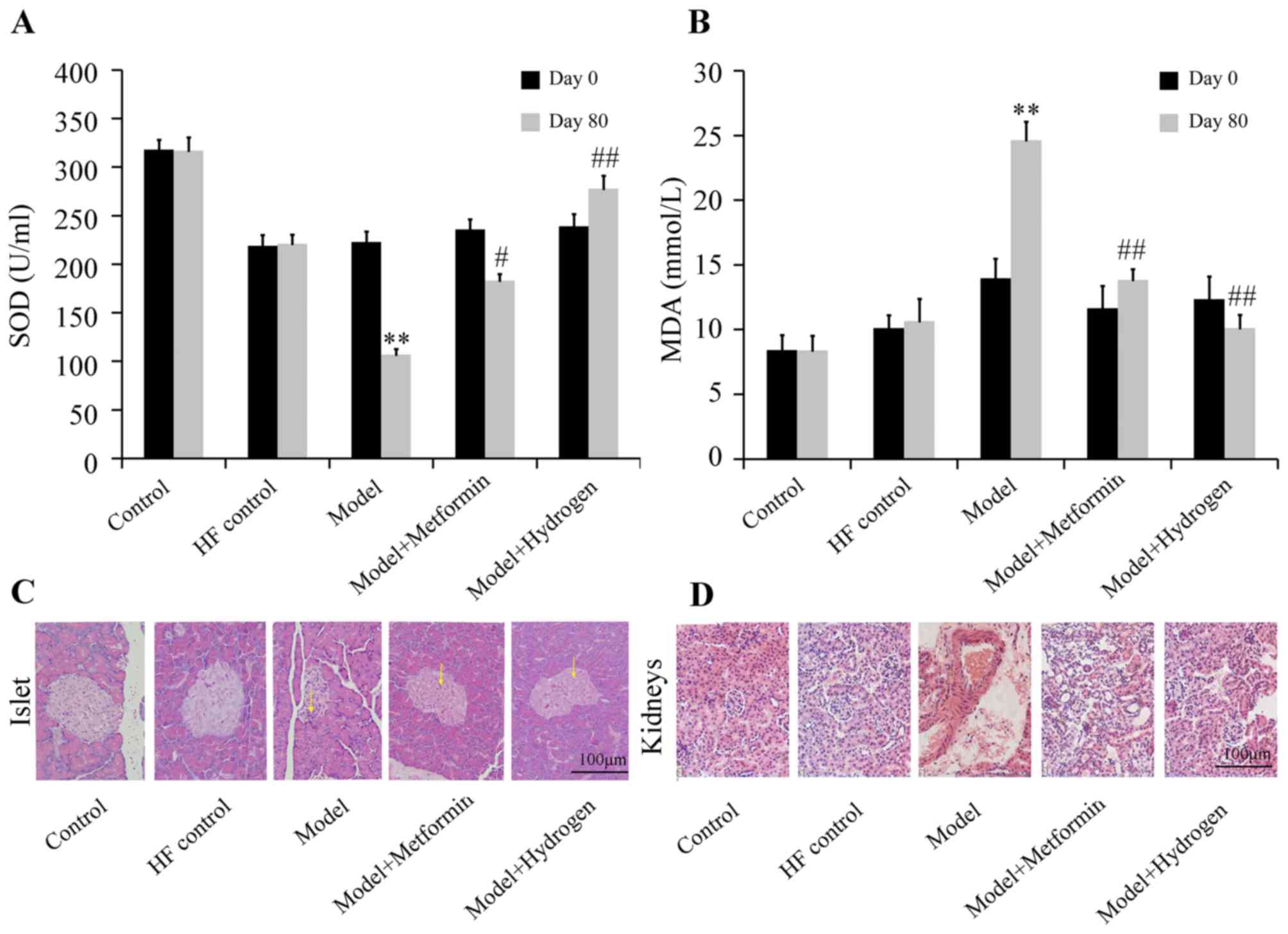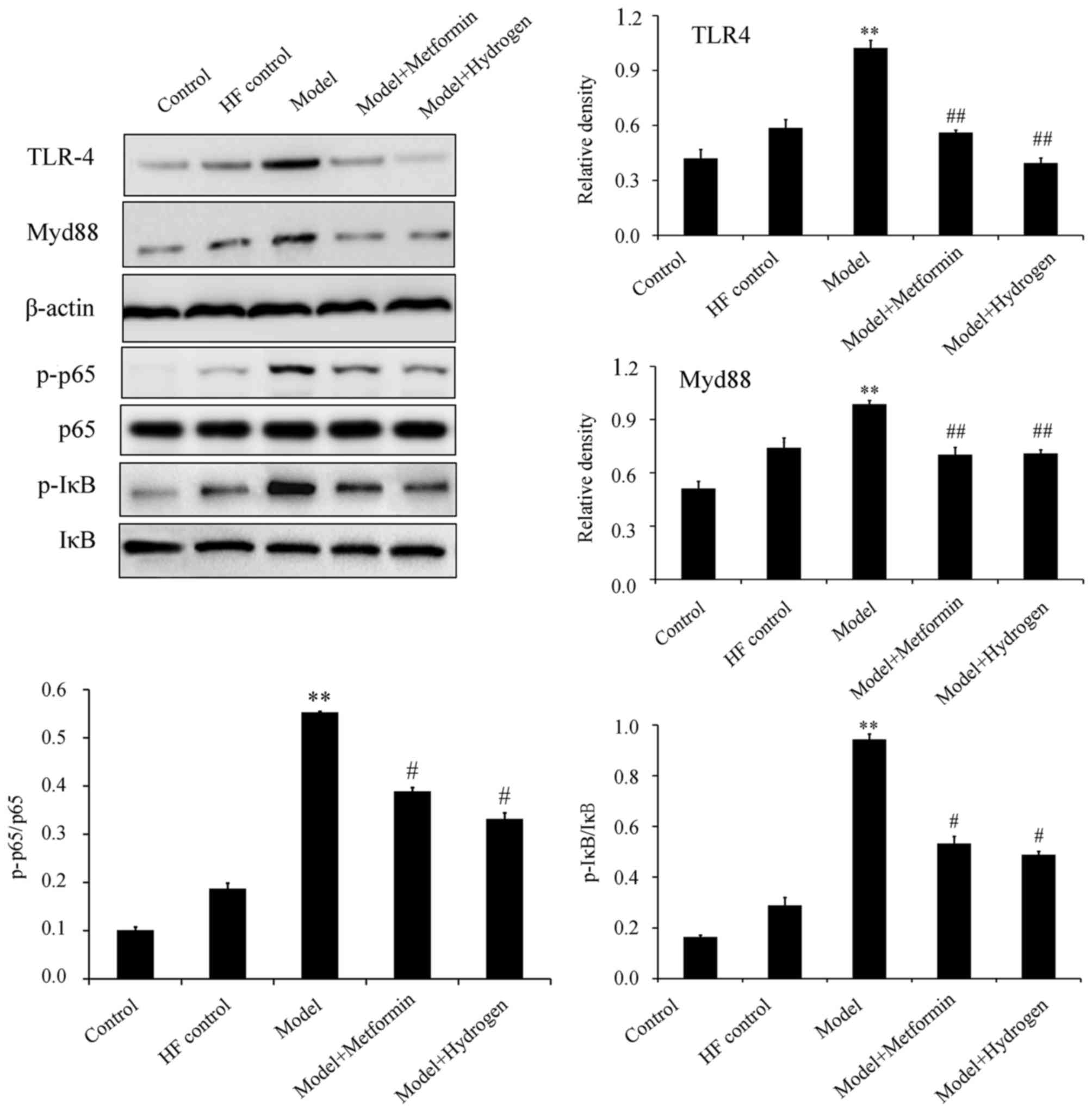|
1
|
Moradi F, Maleki V, Saleh-Ghadimi S,
Kooshki F and Pourghassem Gargari B: Potential roles of chromium on
inflammatory biomarkers in diabetes: A Systematic. Clin Exp
Pharmacol Physiol. 46:975–983. 2019.PubMed/NCBI View Article : Google Scholar
|
|
2
|
Bevilacqua E, Gomes SZ, Lorenzon AR,
Hoshida MS and Amarante-Paffaro AM: NADPH oxidase as an important
source of reactive oxygen species at the mouse maternal-fetal
interface: Putative biological roles. Reprod Biomed Online.
25:31–43. 2012.PubMed/NCBI View Article : Google Scholar
|
|
3
|
Burtenshaw D, Kitching M, Redmond EM,
Megson IL and Cahill PA: Reactive Oxygen Species (ROS), intimal
thickening, and subclinical atherosclerotic disease. Front
Cardiovasc Med. 6(89)2019.PubMed/NCBI View Article : Google Scholar
|
|
4
|
Schönfeld P: Can all major Ros forming
sites of the respiratory chain be activated by high
FADH2/NADH Ratios? Bioessays.
41(e1800225)2019.PubMed/NCBI View Article : Google Scholar
|
|
5
|
Lee JY, Lee YJ, Jeon HY, Han ET, Park WS,
Hong SH, Kim YM and Ha KS: The vicious cycle between
transglutaminase 2 and reactive oxygen species in hyperglycemic
memory-induced endothelial dysfunction. FASEB J. 33:12655–12667.
2019.PubMed/NCBI View Article : Google Scholar
|
|
6
|
Bravard A, Bonnard C, Durand A, Chauvin
MA, Favier R, Vidal H and Rieusset J: Inhibition of xanthine
oxidase reduces hyperglycemia-induced oxidative stress and improves
mitochondrial alterations in skeletal muscle of diabetic mice. Am J
Physiol Endocrinol Metab. 300:E581–E591. 2011.PubMed/NCBI View Article : Google Scholar
|
|
7
|
Cadenas S: Mitochondrial uncoupling, ROS
generation and cardioprotection. Biochim Biophys Acta Bioenerg.
1859:940–950. 2018.PubMed/NCBI View Article : Google Scholar
|
|
8
|
Sifuentes-Franco S, Padilla-Tejeda DE,
Carrillo-Ibarra S and Miranda-Díaz AG: Oxidative stress, apoptosis,
and mitochondrial function in diabetic nephropathy. Int J
Endocrinol. 2018(1875870)2018.PubMed/NCBI View Article : Google Scholar
|
|
9
|
Ni Z, Tao L, Xiaohui X, Zelin Z, Jiangang
L, Zhao S, Weikang H, Hongchao X, Qiujing W and Xin L: Polydatin
impairs mitochondria fitness and ameliorates podocyte injury by
suppressing Drp1 expression. J Cell Physiol. 232:2776–2787.
2017.PubMed/NCBI View Article : Google Scholar
|
|
10
|
Hayashida K, Sano M, Ohsawa I, Shinmura K,
Tamaki K, Kimura K, Endo J, Katayama T, Kawamura A, Kohsaka S, et
al: Inhalation of hydrogen gas reduces infarct size in the rat
model of myocardial ischemia-reperfusion injury. Biochem Biophys
Res Commun. 373:30–35. 2008.PubMed/NCBI View Article : Google Scholar
|
|
11
|
Lu W, Li D, Hu J, Mei H, Shu J, Long Z,
Yuan L, Li D, Guan R, Li Y, et al: Hydrogen gas inhalation protects
against cigarette smoke-induced COPD development in mice. J Thorac
Dis. 10:3232–3243. 2018.PubMed/NCBI View Article : Google Scholar
|
|
12
|
Qiu X, Ye Q, Sun M, Wang L, Tan Y and Wu
G: Saturated hydrogen improves lipid metabolism disorders and
dysbacteriosis induced by a high-fat diet. Exp Biol Med.
245:512–521. 2020.PubMed/NCBI View Article : Google Scholar
|
|
13
|
Taniguchi S, Kang L, Kimura T and Niki I:
Hydrogen sulphide protects mouse pancreatic β-cells from cell death
induced by oxidative stress, but not by endoplasmic reticulum
stress. Br J Pharmacol. 162:1171–1178. 2011.PubMed/NCBI View Article : Google Scholar
|
|
14
|
Ali MY, Whiteman M, Low CM and Moore PK:
Hydrogen sulphide reduces insulin secretion from HIT-T15 cells by a
KATP channel-dependent pathway. J Endocrinol. 195:105–112.
2007.PubMed/NCBI View Article : Google Scholar
|
|
15
|
Lin S, Yang J, Wu G, Liu M, Lv Q, Yang Q
and Hu J: Inhibitory effects of taurine on STZ-induced apoptosis of
pancreatic islet cells. Adv Exp Med Biol. 775:287–297.
2013.PubMed/NCBI View Article : Google Scholar
|
|
16
|
Belfiore F, Iannello S, Camuto M, Fagone S
and Cavaleri A: Insulin sensitivity of blood glucose versus insulin
sensitivity of blood free fatty acids in normal, obese, and
obese-diabetic subjects. Metabolism. 50:573–582. 2001.PubMed/NCBI View Article : Google Scholar
|
|
17
|
Qin L, Qiu K, Hu C, Wang L, Wu G and Tan
Y: Respiratory syncytial virus promoted the differentiation of Th17
cells in airway microenvironment through activation of
Notch-1/Delta3. J Med Microbiol. 68:649–656. 2019.PubMed/NCBI View Article : Google Scholar
|
|
18
|
Ma ZJ, Zhang XN, Li L, Yang W, Wang SS,
Guo X, Sun P and Chen LM: Tripterygium glycosides tablet
ameliorates renal tubulointerstitial fibrosis via the toll-like
receptor 4/nuclear factor kappa B signaling pathway in high-fat
diet fed and streptozotocin-induced diabetic rats. J Diabetes Res.
2015(390428)2015.PubMed/NCBI View Article : Google Scholar
|
|
19
|
Zhang F, Yuan W, Wei Y, Zhang D, Duan Y,
Li B, Wang X, Xi L, Zhou Y and Wu X: The alterations of bile acids
in rats with high-fat diet/streptozotocin-induced type 2 diabetes
and their negative effects on glucose metabolism. Life Sci.
229:80–92. 2019.PubMed/NCBI View Article : Google Scholar
|
|
20
|
Zhang Y, Zhou G, Peng Y, Wang M and Li X:
Anti-hyperglycemic and anti-hyperlipidemic effects of a special
fraction of Luohanguo extract on obese T2DM rats. J Ethnopharmacol.
247(112273)2020.PubMed/NCBI View Article : Google Scholar
|
|
21
|
Xing HY, Cai YQ, Wang XF, Wang LL, Li P,
Wang GY and Chen JH: The Cytoprotective effect of hyperoside
against oxidative stress is mediated by the Nrf2-ARE signaling
pathway through GSK-3β inactivation. PLoS One.
10(e0145183)2015.PubMed/NCBI View Article : Google Scholar
|
|
22
|
Corsa CAS, Pearson GL, Renberg A, Askar
MM, Vozheiko T, MacDougald OA and Soleimanpour SA: The E3 ubiquitin
ligase parkin is dispensable for metabolic homeostasis in murine
pancreatic β cells and adipocytes. J Biol Chem. 294:7296–7307.
2019.PubMed/NCBI View Article : Google Scholar
|
|
23
|
Aslam M, Aggarwal S, Sharma KK, Galav V
and Madhu SV: Postprandial hypertriglyceridemia predicts
development of insulin resistance glucose intolerance and type 2
diabetes. PLoS One. 11(e0145730)2016.PubMed/NCBI View Article : Google Scholar
|
|
24
|
Qiu J, Liu Y, Yue Y, Qin Y and Li Z:
Dietary tartary buckwheat intake attenuates insulin resistance and
improves lipid profiles in patients with type 2 diabetes: A
randomized controlled trial. Nutr Res. 36:1392–1401.
2016.PubMed/NCBI View Article : Google Scholar
|
|
25
|
Álvarez-Almazán S, Filisola-Villaseñor JG,
Alemán-González-Duhart D, Tamay-Cach F and Mendieta-Wejebe JE:
Current molecular aspects in the development and treatment of
diabetes. J Physiol Biochem. 76:13–35. 2020.PubMed/NCBI View Article : Google Scholar
|
|
26
|
Kikuchi C, Kajikuri J, Hori E, Nagami C,
Matsunaga T, Kimura K and Itoh T: Aortic superoxide production at
the early hyperglycemic stage in a rat type 2 diabetes model and
the effects of pravastatin. Biol Pharm Bull. 37:996–1002.
2014.PubMed/NCBI View Article : Google Scholar
|
|
27
|
Abbasihormozi SH, Babapour V, Kouhkan A,
Niasari Naslji A, Afraz K, Zolfaghary Z and Shahverdi AH: Stress
hormone and oxidative stress biomarkers link obesity and diabetes
with reduced fertility potential. Cell J. 21:307–313.
2019.PubMed/NCBI View Article : Google Scholar
|
|
28
|
LeBaron TW, Kura B, Kalocayova B,
Tribulova N and Slezak J: A new approach for the prevention and
treatment of cardiovascular disorders. Molecular hydrogen
significantly reduces the effects of oxidative stress. Molecules.
24(pii: E2076)2019.PubMed/NCBI View Article : Google Scholar
|
|
29
|
Yuan J, Wang D, Liu Y, Chen X, Zhang H,
Shen F, Liu X and Fu J: Hydrogen-rich water attenuates oxidative
stress in rats with traumatic brain injury via Nrf2 pathway. J Surg
Res. 228:238–246. 2018.PubMed/NCBI View Article : Google Scholar
|
|
30
|
Kuwabara T, Mori K, Mukoyama M, Kasahara
M, Yokoi H and Nakao K: Macrophage-mediated glucolipotoxicity via
myeloid-related protein 8/toll-like receptor 4 signaling in
diabetic nephropathy. Clin Exp Nephrol. 18:584–592. 2014.PubMed/NCBI View Article : Google Scholar
|
|
31
|
Kuwabara T, Mori K, Mukoyama M, Kasahara
M, Yokoi H, Saito Y, Ogawa Y, Imamaki H, Kawanishi T, Ishii A, et
al: Exacerbation of diabetic nephropathy by hyperlipidaemia is
mediated by Toll-like receptor 4 in mice. Diabetologia.
55:2256–2266. 2012.PubMed/NCBI View Article : Google Scholar
|
|
32
|
Zhang JS, Tan YR Xiang Y, Luo ZQ and Qin
XQ: Regulatory peptides modulate adhesion of polymorphonuclear
leukocytes to bronchial epithelial cells through regulation of
interleukins, ICAM-1 and NF-kappaB/IkappaB. Acta Biochim Biophys
Sin (Shanghai). 38:119–128. 2006.PubMed/NCBI View Article : Google Scholar
|
|
33
|
Tan Y, Liu H, Yang H, Wang L and Qin X: An
inactivated Pseudomonas aeruginosa medicament inhibits airway
allergic inflammation and improves epithelial functions. J Physiol
Sci. 63:63–69. 2013.PubMed/NCBI View Article : Google Scholar
|


















